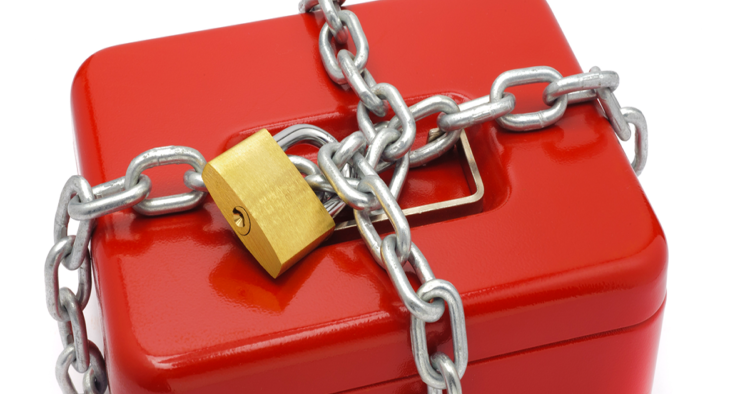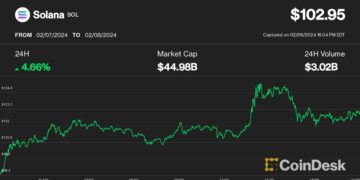
The Reserve Bank of India (RBI) has issued comprehensive guidelines on the measures to be implemented by the banks covering various aspects of how to classify deposits and accounts as unclaimed deposits and inoperative accounts, respectively, periodic review of such deposits and accounts, fraud prevention measures in such steps to be taken for tracing the customers of unclaimed deposits and inoperative accounts, including their nominees/legal heirs for account reactivation, settlement of claims or closure to be followed.
The revised instructions shall come into effect from April 1, 2024, stated RBI.
How will banks review unclaimed, inoperative accounts?
Banks are required to conduct an annual examination of accounts if there haven’t been any customer-initiated transactions for more than a year. To keep such deposits from going unclaimed, banks should examine term deposit accounts in which there is no clear requirement to renew the deposit and see if the clients have moved the proceeds to their savings or current account or withdrew them at maturity.
If an account or deposit has not been used in the previous year, the banks must notify the account or deposit holders in writing by letters, emails, or SMS (if the email and mobile phone are registered with the bank). The alert messages will always state that the account will become “inoperative” after a year if no activities are made, and that in that event, the account user will need to reactivate the account by submitting new KYC documentation.
What happens when letters are undelivered or no response
If the letters are returned undelivered or no response is received through registered email, the bank shall immediately undertake an enquiry to find out the whereabouts of account holder or his/her nominee/legal heirs in case the account holder is deceased.
What happens when customer response is received
The banks will continue to classify the account as operative for an additional year and will advise the account holder to operate the account within that year (henceforth referred to as the “extended period”) if they receive a response from the account holder providing the reasons for not operating the account. Once the extended term has passed and the account holder has not continued to run the account, the banks will label the account as inoperative.
Which transactions are considered for making account as operative
According to the RBI new guidelines, “For the purpose of classifying an account as ‘inoperative’, only customer induced transactions and not bank induced transactions shall be considered. There may be instances where the customer has given a mandate like Standing Instructions (SI)/ auto-renewal instructions and there are no other operations in the Savings /Current account or the Term Deposit. These transactions shall also be treated as customer induced transactions.”What happens when customer has multiple accounts
“The classification of an account as inoperative shall be for a particular account of the customer and not with reference to the customer. In case a customer is maintaining multiple accounts/deposits with a bank, all such accounts/deposits shall be assessed individually for the purpose of classifying them as inoperative account/ unclaimed deposit, as the case may be,” the RBI states.
It further adds, “In case the account holder is not carrying out transaction and the account is – inoperative due to shifting of primary account to another bank, the account holder may be requested to provide the details of the new bank account with authorisation to enable the bank to transfer the balance from the existing bank account.”
How Direct Benefit Transfer under Government Schemes accounts are treated?
Beneficiaries of State and Central government programs as well as scholarship students can create zero balance accounts with the banks. These accounts are also categorised as inoperative since they have not been used for two years. In order to prevent the specification of “inoperative” account being applied to these accounts since they have not been operated for more than two years, the banks must separate the aforementioned accounts in their CBS according to the reason for account opening.
How banks trace customers of Inoperative Accounts/ Unclaimed Deposits
If the email address and cellphone number are registered with the bank, the bank will use these to get in touch with the holder(s) of the inoperative account or unclaimed deposit via letters, emails, or SMS. The SMS/email will be sent out once every three months.
When customer is not traceable
If there is no way to locate the holder(s) of the inactive account or unclaimed deposit, the banks will get in touch with the introducer, if any, who brought the account holder to the bank when the account was opened. If the nominee is registered, the banks will also get in touch with them to track down the consumer.
Whenever there are inactive accounts or unclaimed deposits, the banks are required to conduct particular searches to locate the clients, their nominees, or their legal heirs.
How banks activate inoperative accounts
If the account holder requests it, the banks must provide the option to update KYC for the purpose of activating inactive accounts and unclaimed deposits at all branches, including non-home branches, and via the Video-Customer Identification Process (V-CIP), provided that the bank offers this service. The Master Direction – Know Your Customer (KYC) Direction, 2016 dated February 25, 2016 (as amended from time to time) contains KYC guidelines that the banks must follow in order to activate inactive accounts and unclaimed deposits, including those that are frozen by orders from various agencies such as courts, tribunals, and law enforcement agencies. These guidelines include customer due diligence (also known as CDD), customer identification, risk categorization, and more.
Will banks intimate customers of account status?
As per the new operational guidelines issued by the RBI dated January 1, 2024, “The bank shall automatically intimate the inoperative account/ unclaimed deposit holders though SMS and registered email stating that on the basis of the KYC documents submitted by them, the inoperative status of the account has been removed. The intimation shall also mention the remedial measures available to them to report unauthorised access, if any. This would alert the account/ unclaimed deposit holder against any possible fraudulent activity in his/her inoperative account. The banks shall have in place adequate operational safeguards to ensure that the claimants in case of inoperative accounts/ unclaimed deposits are genuine. The banks shall process requests for activation of inoperative account/ unclaimed deposits within three working days from the receipt of the complete application”
Will banks pay interest on inoperative accounts?
Interest on savings accounts shall be credited on a regular basis irrespective of the fact that the account is in operation or not.
Will banks levy any charges
If an account is deemed inoperative, the banks are not allowed to impose penalties for failing to maintain the required minimum amounts. Activating inactive accounts will not incur any fees.
Source Link














